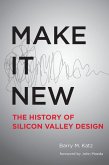What would keep the Bauhaus up at night if it were practicing today? A century after its founding by Walter Gropius in Weimar, Germany, as an "experimental laboratory of the future,” who are the pioneering experimentalists who reinscribe or resist Bauhaus traditions? This book explores the varied legacies, influences, and futures of the Bauhaus.
Many of the animating issues of the Bauhaus—its integration of research, teaching, and practice; its experimentation with materials; its democratization of design; its open-minded, heterogeneous approach to ideas, theories, methods, and styles—remain relevant. The contributors to Bauhaus Futures address these but go further, considering issues that design has largely ignored for the last hundred years: gender, race, ethnicity, class, sexuality, and disability. Their contributions take the form of essays, photo-essays, interviews, manifestos, diagrams, and even a play. They discuss, among other things, the Bauhaus curriculum and its contemporary offshoots; Bauhaus legacies at the MIT Media Lab, Black Mountain College, and elsewhere; the conflict between the Bauhaus ideal of humanist universalism and current approaches to design concerned with race and justice; designed objects, from the iconic to the precarious; textile and weaving work by women in the Bauhaus and the present day; and design and technology.
Contributors Alice Arnold, Jeffrey Bardzell, Shaowen Bardzell, Karen Kornblum Berntsen, Marshall Brown, Stuart Candy, Jessica Charlesworth, Elizabeth J. Chin, Taeyoon Choi, B. Coleman, Carl DiSalvo, Michael J. Golec, Kate Hennessy, Matthew Hockenberry, Joi Ito, Denisa Kera, N. Adriana Knouf, Silvia Lindtner, Shannon Mattern, Ramia Mazé, V. Mitch McEwen, Oliver Neumann, Paul Pangaro, Tim Parsons, Nassim Parvin, Joanne Pouzenc, Luiza Prado de O. Martin, Daniela K. Rosner, Natalie Saltiel, Trudi Lynn Smith, Carol Strohecker, Alex Taylor, Martin Thaler, Fred Turner, Andre Uhl, Jeff Watson, Robert Wiesenberger
Dieser Download kann aus rechtlichen Gründen nur mit Rechnungsadresse in A, B, BG, CY, CZ, D, DK, EW, E, FIN, F, GR, HR, H, IRL, I, LT, L, LR, M, NL, PL, P, R, S, SLO, SK ausgeliefert werden.









